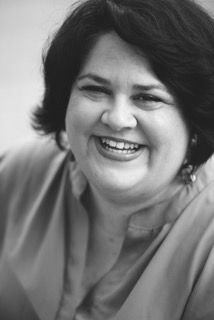A Guest Post by K.D. Julicher
I work from home, forty hours a week. I write – almost always at home – another twenty or more hours. I do chores around the house, tend my child around the house… and for the last seven months, it’s been a pretty small house. Most of my waking hours are spent at my big work desk, ten feet away from my kitchen and five feet from the couch where I spend a lot of the rest of my time.
One of my biggest challenges is switching out of job mode and into another area of my life. I can shut off the computer and walk away, but getting my brain to realize that we are done now and I can go work on my creative projects is something else. It’s probably the biggest hamper on my productivity right now. I find myself dawdling, or surfing the internet, instead of getting to my writing. Or there will be some chore that wasn’t important enough to interrupt my day-job for, but now absolutely must be done. Or my child is being dreadfully neglected, or there’s some exotic ingredient I must have for dinner…
So I have coping mechanisms. First, I try to do mental prep-work in the half hour leading up to quitting time. I assess whether I’ve got dinner under control, and if not, make a plan. I organize my thoughts and figure out what I’m going to do when I get done with work. Maybe I think about the scene I’m writing, or the plot problem I’ll be addressing.
Then I get done with work. I stand up from my desk, I stretch, I get a new drink, and I relocate. I have an awesome work desk with a super comfortable chair and a huge monitor and a keyboard I love. But if I try to write there, I’ll get nothing done. I need a change of setting after 9 hours in the same spot.
I walk back to the spare room, where in one corner, away from the massive quantities of Lego and the storage tubs that wouldn’t fit anywhere else, I have a wooden desk. Or half of one, depending on how much of the Lego array has migrated. I’ve got a keyboard and a pair of headphones, and I bring in my laptop, plug it in, crack my soda, sit down on the less comfortable office chair, and bring up my project file.
Human brains are amazingly strange things. Everyone’s experienced that moment where you get up to look for something in another room, and then you can’t remember what it was. Turns out that the act of leaving one location and entering another serves as a cue for your brain to dump whatever it was remembering. That’s annoying when you are trying to remember what you were looking for in the kitchen, but really useful when you’re trying to shift from one mode to another. By training my brain that the spare room is for writing, I can leave the day job behind relatively easily.
We’re going to buy a house soon, and I know that my writing space will have to be planned from the start. It’s very effective for me to have a place I can go to and draft. By the same token, that isn’t my editing spot. I edit curled up on a comfortable chair, usually while my husband reads the draft on his ipad so we can go scene-by-scene, line-by-line through the story. Trying to edit in my writing spot would make me crazy. The subconscious cues I have to tell me to “just sit down and write” would make trying to take time and actually edit impossible.
The writing spot is going to be different for everyone. An ergonomic setup is best for your body, but that can mean a fancy chair, a squat ball, even a walking desk. Maybe you write on a netbook. Maybe you have a 32-inch monitor. Have you spent time thinking about your surroundings? Take some time now. Try something new. A different computer, or a typewriter or a new notebook. A different chair. Maybe your chair is too comfortable, and you get all relaxed and can’t produce! Perhaps you need headphones to shut out the outside world, or a nice set of speakers so you can play music and still hear the doorbell, or you have to work in absolute silence. Maybe there’s a door that you can close, or a window that needs to be open.
If your writing process is stalling out at any stage, take a look at your physical environment. Is the rest of your life intruding on you? Are you trying to write next to a pile of unfolded laundry? Are you editing in a tiny closet with no way to look outside? Are you trying to brainstorm on the treadmill, even though you know your best inspirations come when you’re in the shower or hiking?
I’m not saying your surroundings have to be perfect. If writers could only produce when seated at 19th century desks in a New England garret, bookstore shelves would be empty. But for those of us who struggle to keep up our productivity around all the other demands of life can help ourselves by taking a few steps back and thinking about where we write instead of just what we write.
K.D. Julicher:
K. D. Julicher writes from the mountains of Nevada, where she and her husband collaborate on novels and raising a daughter. Her day job involves keeping trains from running into each other. She won the 2014 Baen Fantasy Award and will be published with this year’s winners of the Writers of the Future contest. Links to published works and infrequent news can be found at www.kdjulicher.com.




